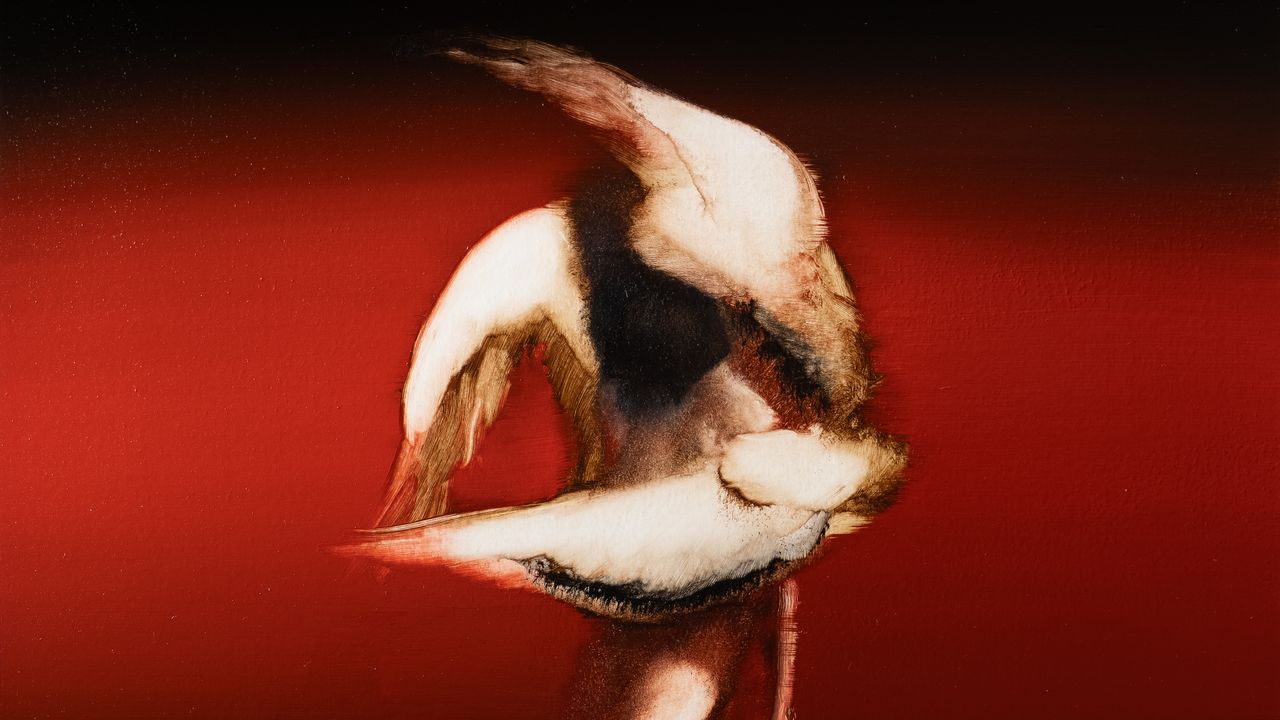Onstage, Manchester four-piece Maruja conduct a series of distinct rituals. Like Moses commanding the Red Sea, sax player Joseph Carroll might gesture for the crowd to part down the middle, then join them to kick off the first song. Singer and guitarist Harry Wilkinson will peel off his shirt and pump through a few pushups at the top of “Break the Tension.” Drummer Jacob Hayes and bassist Matt Buonaccorsi may wave their arms in slow motion, like mediums leading a seance. The band performing these varied acts—signaling sacred communion one moment, overt masculinity the next—boomerangs between free jazz, hip-hop, hardcore punk, and alt-rock balladry, sometimes within the same song. On their debut album Pain to Power, Maruja aim to bottle their intense live act and improvisational spirit. Their ferocity mostly remains intact, but it’s an overall disjointed listen, with slower tracks that skid and sputter next to more bracing pieces.
Pain to Power is a testament to Maruja’s manifold influences. Their sound draws from various UK scenes of the past decade-plus; in particular, the post-punk and experimental rock championed by bands like Shame, Yard Act, Black Midi, and Squid and the teeming London jazz community that has nurtured artists like Shabaka Hutchings, Nubya Garcia, and Moses Boyd. Wilkinson, who sometimes raps in fast-paced, gasping measures, has also cited homegrown MCs Lee Scott, Jehst, and Little Simz as influences. Pain to Power’s best songs sound mesmerizing, as if elements of each style were hurled around with speed and abandon, like different pigments slashing against a Pollock canvas.
Kicking off as an industrial punk grinder, “Break the Tension” morphs into agit-jazz as Carroll swoops in with belching and fluttering saxophone. Maruja fold in spectral backing vocals, racing percussion, and trunk-rattling bass, building to a pressure point that never lets up. Album opener “Bloodsport” is even more exhilarating, as Wilkinson raps over rim shots that tick like a bomb and bass strings with the heft of truck tires. “Shame so strong wanna wash away with blood,” Wilkinson barks. “Blood calls blood, will we ever bleed enough?” He leaps between steady spoken word and raw-tonsiled screams, a feat that recalls contemporary hardcore a la Show Me the Body, but also ’90s heavies Rage Against the Machine.
Like both of those bands, Maruja invokes political issues in song and onstage, frequently leading their crowds in “Free Palestine” chants and reflecting on oppressive power structures within their lyrics. The epic, 10-minute “Look Down on Us” deals with the latter, criticizing the lords of late-stage capitalism—CEOs, tech-titans, and the suits that land on the front page of Forbes magazine. “Picking bones through their teeth caught between the meat,” Wilkinson rasps. “See the blood dripping down to the claws on their feet.” He rolls select “Rs,” invoking Zack de la Rocha and Johnny Rotten.
